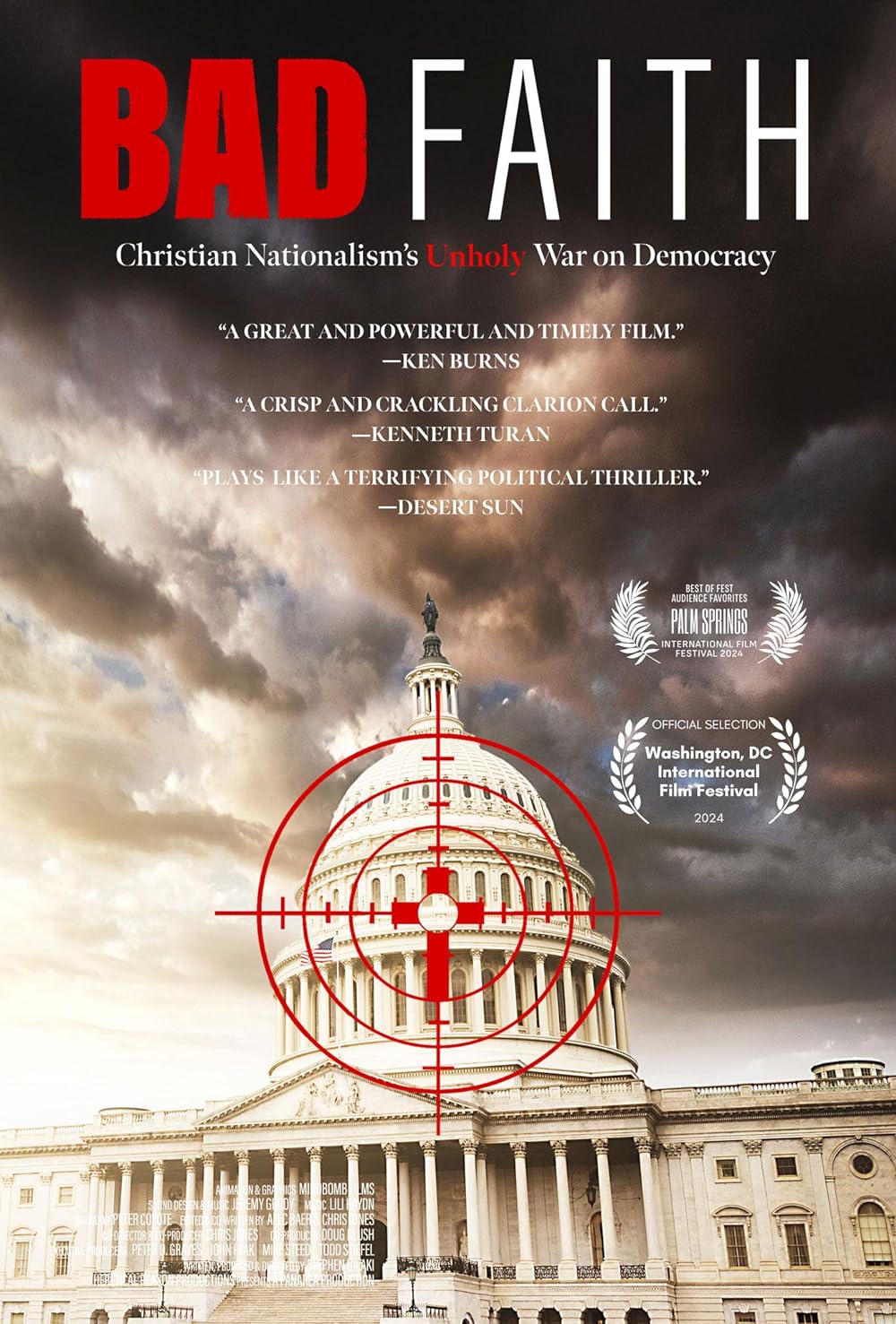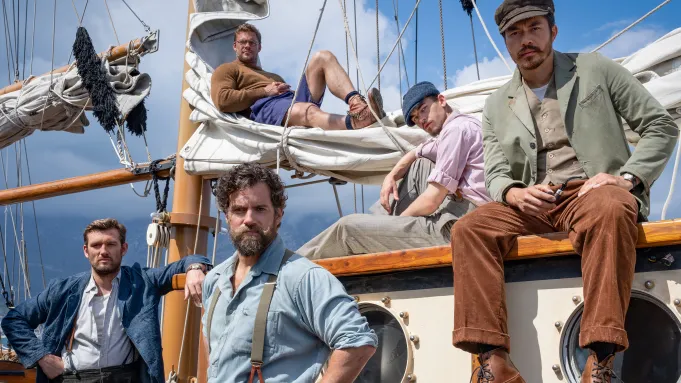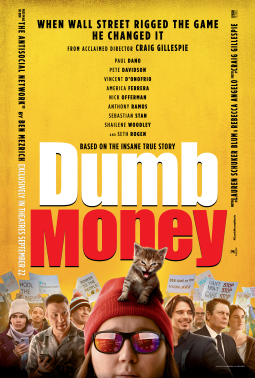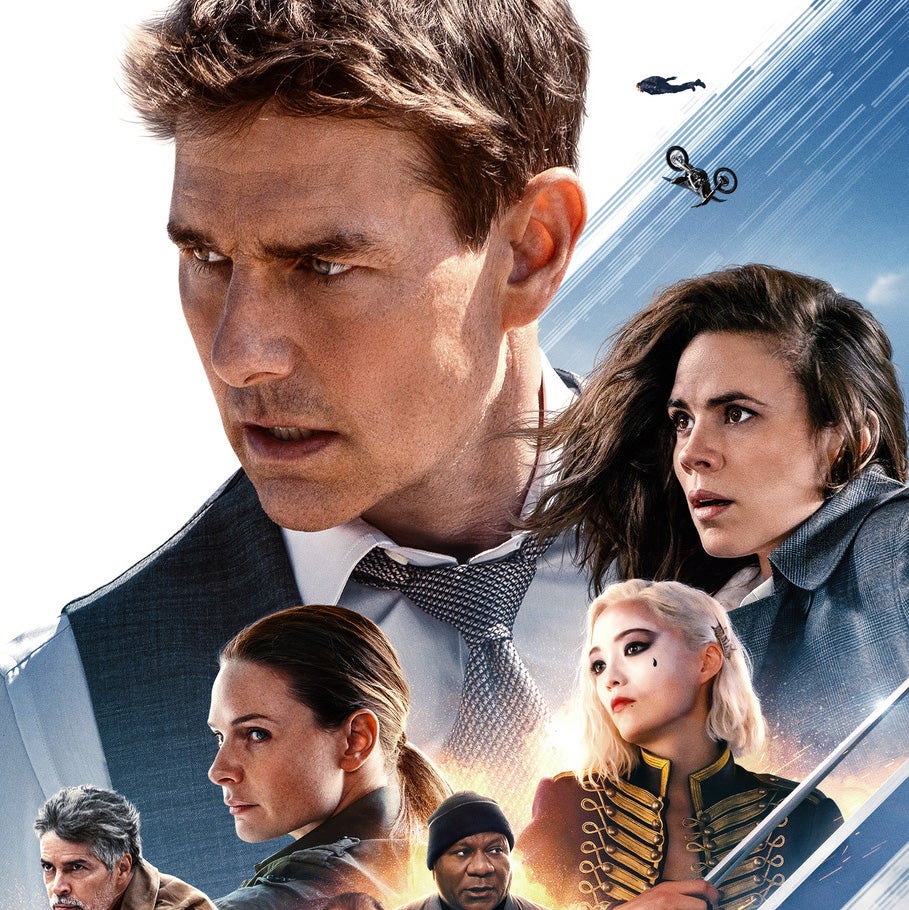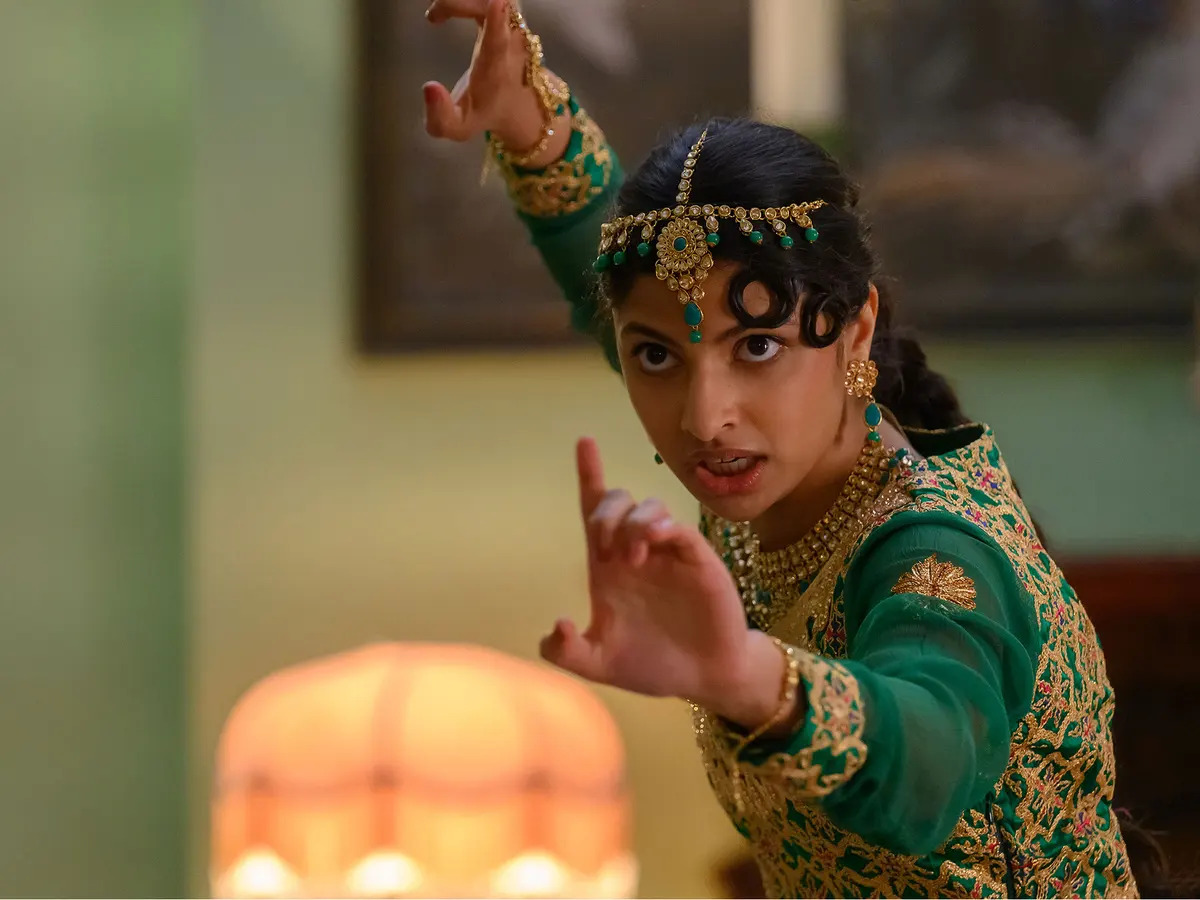The 40-Year-Old Virgin
Posted on August 12, 2005 at 7:05 am
A+| Lowest Recommended Age: | Preschool |
| Profanity: | Extremely strong language, including n-word and other racial epithets |
| Nudity/ Sex: | Very explicit sexual references and situations, pornography, some non-sexual nudity, same-sex kiss |
| Alcohol/ Drugs: | Drinking and drug use |
| Violence/ Scariness: | Comic peril and mild violence, brief clips from horror movie |
| Diversity Issues: | Diverse characters, "gay" used as all-purpose insult |
| Date Released to Theaters: | January 1, 1970 |
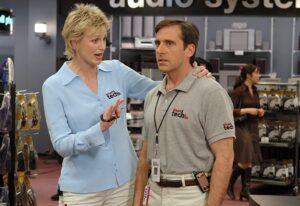
Andy (Steve Carell) collects “action figures” from movies, comic books, and television series, maintaining them with curatorial scrupulocity in their meticulously preserved original packaging. He is pretty meticulously preserved himself. Like his collection, he is an action figure who gets no action. Andy is, as the title says, a 40-year-old virgin.
Andy is a sweet guy who had a couple of bad experiences as a teenager and then just gave up. The pent-up longing has him so tightly wound that he moves as though it requires his full concentration to make sure that he doesn’t explode into a volcano of denied desire. He believes that if he just ignores it, it will all go away. So he spends his weekend making egg salad, and then doesn’t eat it. And the highlight of his social life is watching television with his elderly neighbors. And the whole world seems to exist to torture him. He can’t even escape a sexy bus poster for a cologne called “Eruption.”
When Andy’s colleagues at an electronics store discover his secret, they vow to help him cross the threshhold into sexual relations with a woman. They have a lot of theories and a lot of advice. Andy ends up trying everything from taking a drunk girl home to speed-dating and a “sure thing,” but everything goes excruciatingly, humiliatingly — and hilariously — wrong.
Meanwhile, Andy meets Trish (Catherine Keener), a warm-hearted woman who owns a nearby “Sell it on Ebay” store. The more he comes to like and feel close to her, the more he fears disappointing her or looking foolish due to his lack of experience.
This is a performance anxiety movie, a sort of American Pie for grown-ups. It reaches into our deepest fears of appearing ignorant or foolish or clumsy and shows us that as horrifying as our worst fears are, it is possible to come up with scenarios that are even worse. And because they are happening to someone else, they are not just very funny, but very cathartic.
That makes it the best kind of funny. The clever script is more than just a series of skits and the characters are real and endearingly romantic. The script’s structure sets up the narrative direction and the change in the lives of the characters beautifully. The already-legendary chest-waxing scene (no special effects or tricks — that’s Carell’s hair getting yanked out) is not just a comedy bit. It is sort of primal scream therapy for Andy and — like all of his other encounters — a crucial step on his road to getting in touch with all of his feelings.
Too many raunchy comedies make the mistake of confusing outrageousness with humor (take a look at the horrible Say it Isn’t So as one atrocious example). The ones that get it right make sure that we are rooting for the characters. What makes this movie work is that the under-used organ it focuses on is Andy’s heart.
Parents should know that this is not intended for or appropriate for kids or most teenagers. It is a raunchy sex comedy with very strong language and very explicit and crude sexual references (including teen sex) and situations, some homophobic humor, and some non-sexual nudity. Characters drink (some get drunk) and smoke marijuana. There is comic peril (no serious injury) and comic barfing, and condom humor, along with some brief horror movie clips from Dawn of the Dead. One strength of the movie is that it comes down very clearly on the side of truly intimate, monogamous, and romantic relationships. And another is its portrayal of diverse characters who demonstrate loyalty and compassion. And while there is some sexist and mysogynistic talk, the behavior of the men in the movie and the lessons they learn come down on the side of commitment and love.
Families who see this movie should talk about why it was so hard for Andy to tell the truth about himself and what he learned about honesty. They might also want to talk about some of their own experiences and fears and about the feelings everyone has in evaluating the risks of intimacy. And they can talk about the idea that if what feels right doesn’t work, how you can tell when it is time to try something else and what that should be.
Families who enjoy this movie will also enjoy American Pie.

